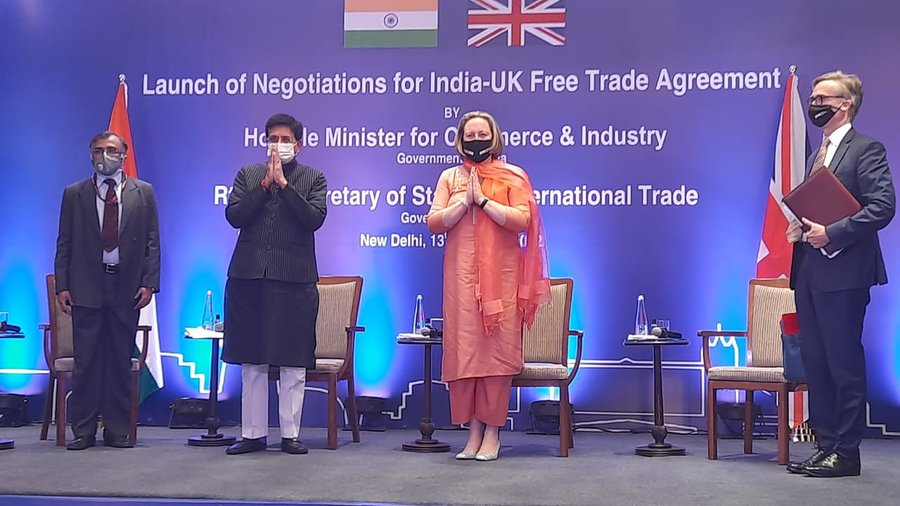NEW DELHI: The “surprising” decision of the Bar Council of India (BCI) to allow foreign lawyers and law firms to practice in India was a vital part of the talks regarding the Free Trade Agreement (FTA) between India and the United Kingdom that are in their final stages.
For long, representatives from London had been pushing to “liberalize” India’s legal service space by allowing the entry of lawyers and firms that are originally registered outside India. The reason for this is the “huge” market for quality legal minds that India has to offer.
As per a report, the average billing that Indian law firms charge (per hour) from their clients is $271 or Rs 22,000 per hour. The highest is being earned by employees at the managing partner level (up to $2,000 per hour or Rs 1.65 lakh per hour).
In September last year, representatives of the Law Society of England and Wales and the UK government’s Department of International Trade had come to Delhi and met Indian representatives, including bureaucrats, members of BCI and those of Indian law firms, to persuade them to allow foreign law firms to come to India.
The objections to the entry of the law firms into India were mostly coming from the representatives of law firms that are based in India. During the discussions, the objections on the part of the Indian side, people aware of these developments said, were two-fold—one that even if a reciprocal arrangement was agreed upon, in which the Indian lawyers and law firms would be able to practice in the UK, the Indian entities would find it extremely difficult to get “clients” in the UK because of the already established local lawyers and firms.
The second objection was that the Indian entities in India would lose their hold over young lawyers as once the foreign lawyers and firms enter the Indian market, they will emerge as the first choice for internship and jobs considering their pro-employee policies, pay, work environment and professionalism.
In short, the Indian team, rather than allowing the free market economy to play out by competing in a global market and allowing global competition into India, wanted to continue with “protectionism”, which was the hallmark of the Indian economy for long.
However, given the enormous mutual benefits that these two countries have once the FTA is signed, Government of India decided to take a rational approach rather than keep protecting the existing set up. As per official records, India and the UK recorded trade worth £34 billion at the end September 2022.
The topic of allowing British legal firms and lawyers to practice in India was a “critical” condition for the movement of the FTA negotiations. In December last year, this issue was also raised by one of the British politicians in the House of Lords. Responding to him, the government representative had stated that the British team had apprised Commerce Minister Piyush Goyal about the benefits of this “reciprocal” arrangement.
Wednesday’s decision announced by the BCI, which regulates law practice in India, is being seen as an imminent sign of the FTA deal being signed before this year ends. When this happens, this will be India’s first FTA with a member of the G-7 club.
After Bar Council nod to foreign lawyers, India-UK closer to signing FTA
- Advertisement -

